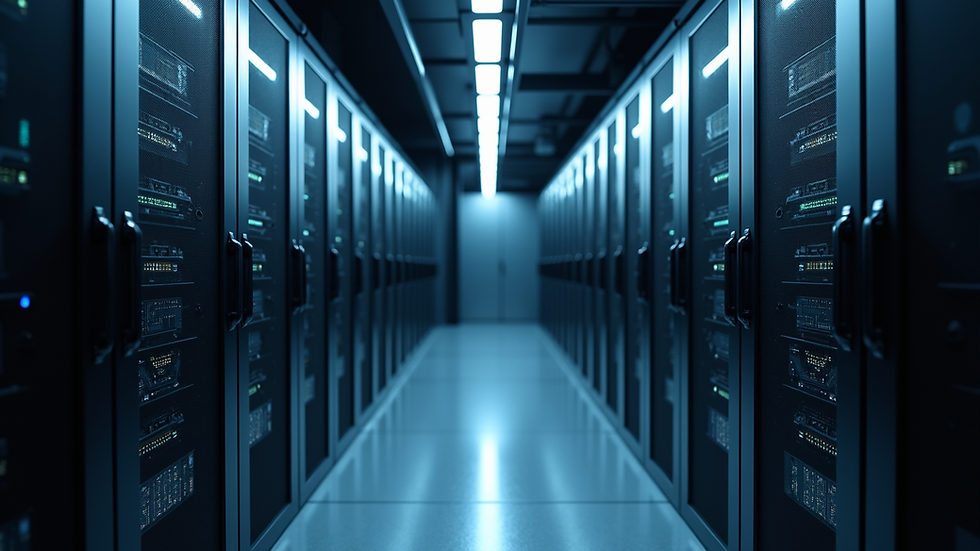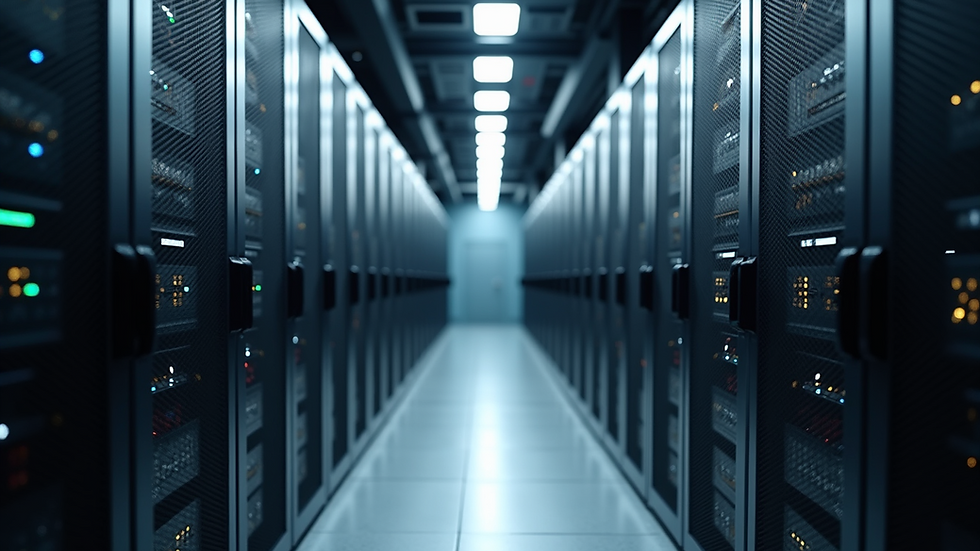The Essential Role of Modern Data Centers in Driving Enterprise Digital Transformation
- TBot Group
- Aug 7
- 3 min read
In today's fast-paced world, data is growing at an unprecedented rate. By 2025, it is estimated that the global data sphere will reach over 175 zettabytes. At the heart of this data explosion are data centers, which play a critical role in how businesses store, manage, and access their information. For startups and large enterprises alike, efficient data handling can determine overall success.
However, not all data centers are equal.
Modern enterprises need data centers that offer high availability, scalability, security, and energy efficiency. Traditional setups are increasingly being replaced or enhanced by hybrid, colocation, and edge data center models, each designed to keep pace with evolving technology demands.
Why Data Centers Matter Today
Business Continuity
Downtime can cost businesses significantly. In fact, the average cost of downtime is estimated to be around $5,600 per minute for large companies. Modern data centers provide around-the-clock uptime and resilience, which is essential for operations that rely on continuous data access. If a company cannot deliver uninterrupted service, it risks losing revenue, customer trust, and competitive advantage.
Data Sovereignty & Compliance
The location of data plays a key role in legal obligations across different sectors. With strict regulations like GDPR and HIPAA in place, enterprises must know where their data is stored and the laws that apply to it. Modern data centers are designed to help organizations comply with these regulations, ensuring that both the enterprise and its customers are protected.
Scalability on Demand
Businesses must be able to scale their infrastructure in line with growth. Traditional data centers often come with hefty upfront costs and complex processes for scaling infrastructure. In contrast, modern solutions that utilize cloud technology offer the flexibility to quickly adjust resources based on real-time needs. This agility allows companies to concentrate on growth instead of being bogged down by infrastructure issues.
Sustainability
With the increasing focus on sustainability, green data centers have become essential. These facilities use energy-efficient designs and prioritize renewable energy sources. For instance, data centers can reduce their carbon footprint by up to 90% by using renewable energy. As consumers lean toward environmentally responsible companies, choosing a data center that emphasizes sustainability can also serve as a competitive edge.
Key Considerations When Choosing a Data Center Partner
Tier Certification and Reliability
Understanding a data center's tier certification is vital when selecting a partner. The Uptime Institute categorizes data centers into tiers, with higher tiers indicating greater reliability and operational sustainability. For example, a Tier III data center boasts 99.982% uptime, significantly reducing the risk of outages and enhancing overall business productivity.
Network Redundancy and Connectivity
Make sure your data center offers robust network redundancy and multiple connectivity options. This includes multiple data routes and switching paths to avoid single points of failure. Strong connectivity minimizes downtime and enhances data transfer rates—with faster data transfers being crucial for applications such as real-time analytics and cloud computing.
Physical and Cyber Security Protocols
The rising threat of cyber attacks makes strong security protocols essential. A reliable data center should have comprehensive physical and digital security measures in place, including surveillance, controlled access, incident monitoring, and advanced firewalls. For example, some facilities employ biometric scanning to control access, significantly reducing the risk of unauthorized entry.
Remote Monitoring and Support Capabilities
As companies shift more data to data centers, the ability to monitor systems remotely has become necessary. Choosing a partner who provides remote monitoring tools allows businesses to track performance and tackle issues promptly. Moreover, 24/7 technical support is essential to minimize disruptions during unexpected incidents.

The Path Forward
Your data center strategy should closely align with your business growth strategy. Whether modernizing your existing infrastructure or migrating to new solutions, understanding the integral role of data centers is vital for success.
Choosing the right partner can significantly influence operational efficiency and open new growth opportunities. An effective data center strategy helps businesses navigate the complexities of the digital landscape, ensuring their competitiveness in an ever-evolving market.
Transitioning to a digitally-centered enterprise is an ongoing process that requires strategic insight and adaptability. By investing in modern data center solutions, companies can meet today's demands while preparing for future challenges.

As data continues to influence business operations, modern data centers are critical to digital transformation. Organizations should asess their unique requirements and collaborate with data centers offering the infrastructure, support, and innovation necessary to thrive in this data-driven landscape.
The move toward cloud computing, hybrid models, and edge computing is expected to grow as businesses aim for more agility and responsiveness. By grasping the potential of modern data centers, companies can position themselves for long-term success in a challenging environment.




Comments